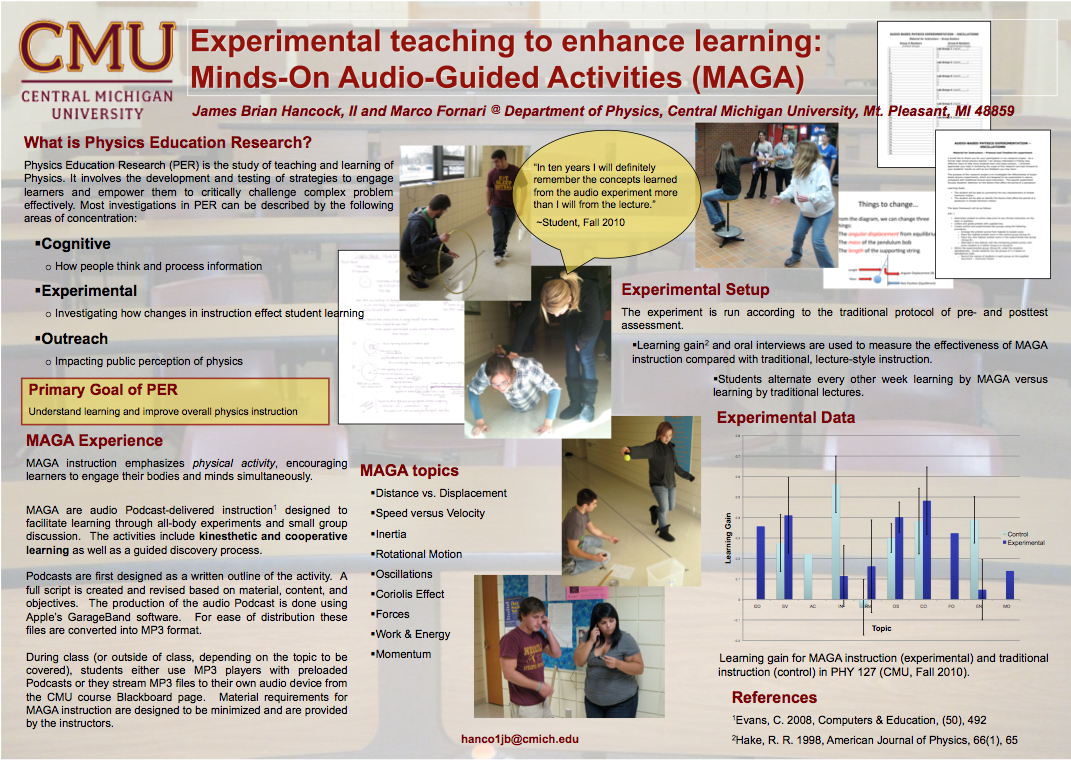Curriculum and instructional developments
Computation in Physics (PHY264)
I designed this course to provide undergraduate students with basic knowledge of the fast evolving are of computation as it applied to physics. After an introduction computer hardware (RaspberryPI) and operating systems (Linux), the course discusses basic data structures and algorithms and uses the Julia language to implement them.
Careers in Physical Science (PHY501)
The course engages students with a
physics, astronomy, and physical science
background in building a sound career plan and identify the
steps to reach their goals. Students will be guided in
matching their skills with real professions, preparing
targeted
job applications, as well as refining their presentation and
interview skills. Students will
also explore the job market with direct interaction with
selected expert working outside
the academic environment.
Introduction to Mathematical Physics (PHY312)
This course aims to review and
expand
the students’ background in mathematics needed to understand and
apply the
principles of mechanics, electromagnetism, optics, astronomy,
and quantum mechanics. Large emphasis is given to exercises and
problems, however, abstract mathematical concepts will be also
discussed as I consider them very important for a thorough
understanding of Physics. Topics are introduced in a constructive
approach and applications in mathematics and/or physics are
discussed.
Physical Principles in the Science of Materials (SAM630)
This course aims to review and expand the students' background in physics principles and methods and focuses on applications in materials science. It was organized in two modules that revolve around "thought experiments". Topics are introduced by building models that allows to interpret theexperiments.
University Physics (PHY145)
In collaboration with a graduate student we have introduced and tested weekly cooperative problem solving sections (PSS). We have also introduced a diversified assessment tool which included short answers, CRP, and multiple choice questions.Table Top Physics (PHY127)
Completely redesigned in PBL format (Fall 04, Spring 05). Several PBLs were designed to introduce concepts such as error analysis, temperature, heat, phase transitions. The PBLs topic revolved around the science of cooking. Assessment has been done with concept mapping, presentations, and reports (see Projects).Currently (since Fall 10 with graduate student J. B. Hancock II) we are collecting data on the effectivness of Mind-on Audio Activities on the laws of motion (see here).
Solid State Physics (PHY556)
Completely redesigned in PBL format. See "Teaching Central" (Spring 05).In recent years has been taught with the same approach of SAM630 (less introductory materials and more advanced topics).
Conceptual Physics (PHY100)
Introduced peer-teaching (Mazur's style), cooperative learning activities, concept mapping and rich context problems (RCP, UMN - Minneapolis). Few experiences with problem based learning (PBL).Methods of Theoretical Physics (PHY614)
In this class I have introduced Hilbert space theory applied to quantum mechanics building on simpler linear algebra formalism.
